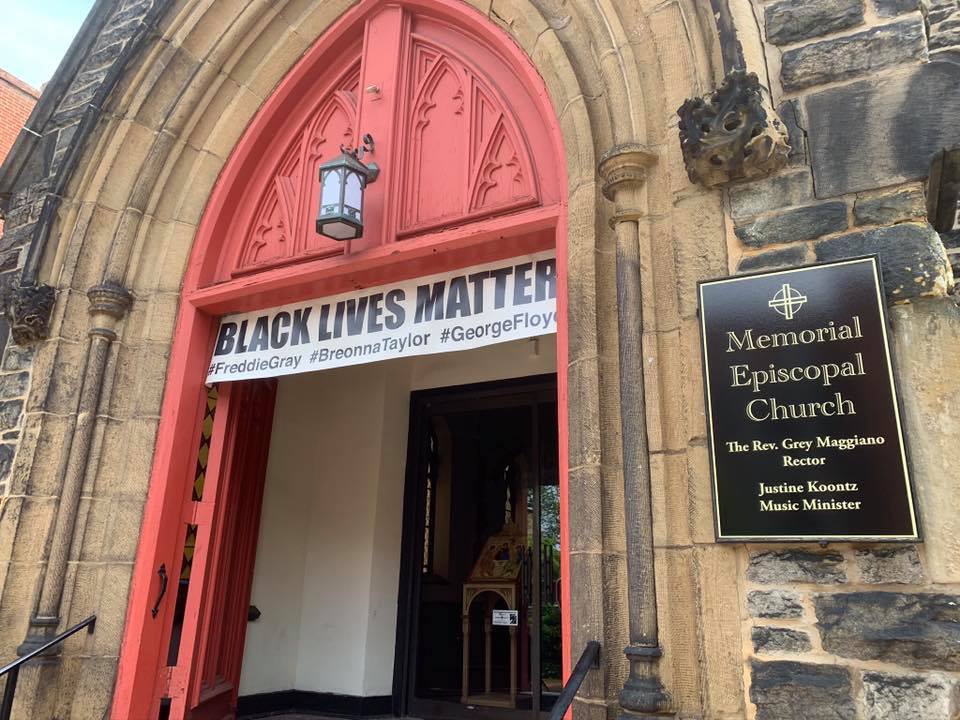Memorial Episcopal Church Baltimore has pledged $500,000 for reparations and racial justice over five years.
RNS:
“Our church has a long history of, unfortunately, supporting racial segregation up until 1969,
being active participants in it,” said the Rev. Grey Maggiano, rector of the church that was founded in 1860, on Tuesday (Jan. 26).
“And so we’ve identified a few key areas where we need to make particular amends and atone.”
The church’s action comes in response to the approval in September by the Episcopal Diocese of Maryland of a $1 million “seed fund for reparations.”
The full statement from Memorial follows:
Baltimore— Jan. 25 — Yesterday, Memorial Episcopal Church unanimously approved an act of reparations with the creation of the Guy T. Hollyday Memorial Justice and Reparations Initiative seeded a withdrawal of $50,000. The figure represents roughly 10% of the endowed wealth of the parish. The parish will add an additional $50,000 from its operating budget. The church has committed $500,000 to justice and reparations over 5 years.
“Since 2017 this parish community has focused on uncovering the truth of our past and studying the true impact that Memorial inflicted on our neighbors through housing segregation and redlining, disenfranchisement of Black voters, and inequity in school and youth programs here in Baltimore. As a faith community dedicated to social justice, we acknowledge how our history has shaped our present reality. This initiative is one more step toward repairing that harm,” said Rev. Grey Maggiano, Rector.
While many believe that the “past is in the past,” the current congregation of a church formed as a memorial to slave-owners acknowledges that as a parish, city and country we are not far removed from that past. In fact, the current congregation includes both Rev. Natalie Conway who discovered her ancestors were enslaved by the family of the founders, and Steve Howard, an indirect descendant of that same family. Both have shared their stories and helped the congregations and others on a path toward healing.
In addition to deep study and conversation about the legacy of past actions, the church has removed plaques dedicated to the founders, covered art within the sanctuary, and commissioned a local artist to create a piece for outside the church commemorating the families enslaved by the founding rectors. The physical changes remind the parish that Memorial of this century will not be like the past. The financial reparations, the Guy T. Hollyday Memorial Justice and Reparations Initiative, will be invested in community partners that are doing justice-centered work to undo inequality in housing, education, environmental justice and civic engagement.
###

